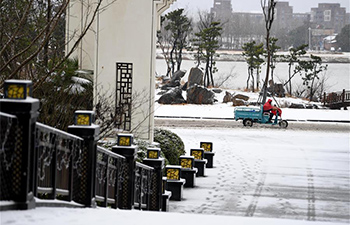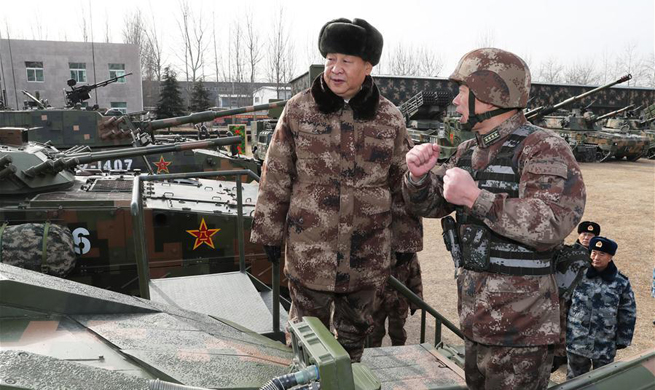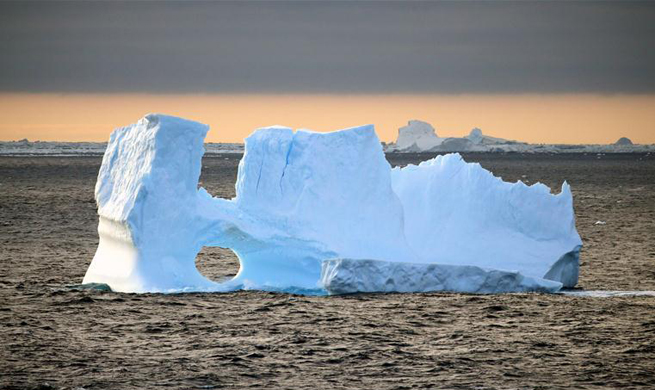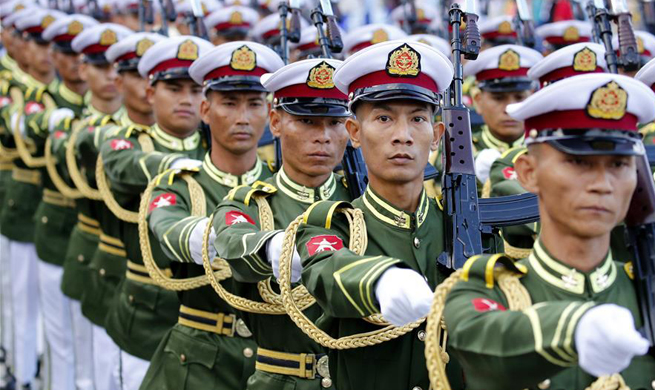by Mahmoud Fouly
CAIRO, Jan. 4 (Xinhua) -- A recent deal to lease a Sudanese Red Sea island to Turkey for development raises Egypt's concerns amid Cairo's tense relations with Ankara and Khartoum either for political disagreement or border dispute, said Egyptian political experts.
In late December, Turkish President Recep Tayyip Erdogan and his Sudanese counterpart Omar al-Bashir signed an agreement to temporarily lease Sudan's Suakin Red Sea island to Turkey for development by Turkish investment projects.
Located in eastern Sudan, the archeological city of Suakin has historical sites dating back to the Ottoman era and it also has a port mostly used for carrying commodities and passengers to Saudi Arabia on the opposite side of the Red Sea.
"Any movement at the Red Sea could have repercussions on the Egyptian national security, but Egypt has massive military capabilities at the Red Sea that can defend the country's borders," said Tarek Fahmy, Egyptian political science professor at Cairo University.
Fahmy believes that the Turkish-Sudanese island deal is an important development although it is unclear whether it will be for mere development or any other purposes, stressing that the Red Sea region has become "a spot of regional and international conflicts at the same time."
Relations between Egypt and Sudan have been tense over the past years on various issues.
In May 2017, the Sudanese president accused Egypt of providing military support for armed rebels in his country, which was strongly denied by the Egyptian leadership.
The two countries also have a territorial dispute over the border region of Halayeb and Shalateen, which are currently under Egyptian control.
"Suakin island is very close to the border region of Halayeb and Shalateen, so the island deal also implies a Sudanese challenging political message, especially that it was preceded by Sudanese remarks claiming rightful ownership of Halayeb and Shalateen," the professor told Xinhua.
Sudan has been annually renewing complaints at the United Nations Security Council over Halayeb and Shalateen, which it wants to settle through either dialogue with Egypt or international arbitration.
Also, Sudan and Egypt, being the two downstream partners of the Nile River, have conflicting interests regarding Ethiopia's under-construction giant dam, as Sudan sees it greatly beneficial while Egypt considers it a threat to its annual share of 55.5 billion cubic meters of the river water.
Experts believe that Sudan's island lease to Turkey is a message to other regional players including Egypt, Saudi Arabia and Israel, as Sudan reassured that it is neither part of any regional alliances nor joining one led by Turkey and expressed openness to all peace-loving states.
On the other hand, Egypt's ties with Turkey deteriorated following the military ouster of former Islamist President Mohamed Morsi in July 2013 in response to mass protests against his one-year rule and his now-outlawed Muslim Brotherhood group.
Egyptian President Abdel-Fattah al-Sisi, who led Morsi's ouster as the army chief then, accuses Turkey, besides Qatar, of supporting terrorism and interfering in Egypt's domestic affairs by hosting fleeing Brotherhood members blacklisted by Sisi's administration.
"Suakin island deal complies with the Turkish strategy to increase its presence in Africa in general and in the northeastern part of the continent in particular," said Ayman Shabana, deputy director of the African Research Institute of Cairo University.
He expressed his belief that the announced purposes of the island deal, including Turkish development projects, archeological restoration and cultural revival, are only meant to cover Turkey's real purpose of establishing its presence southern Egypt, opposite to Saudi Arabia and near the Gulf region.
Shabana said that Turkey's new strategy heads towards Africa after failing to join the European Union, seeing the deal as part of Turkish attempt to exercise pressure on Egypt that foiled the Turkish ambition of having Islamists as rulers of Arab states.
"I believe the deal is meant to pave the way for a Turkish military presence in the island, which is a threat to the Egyptian national security," the professor told Xinhua.

















